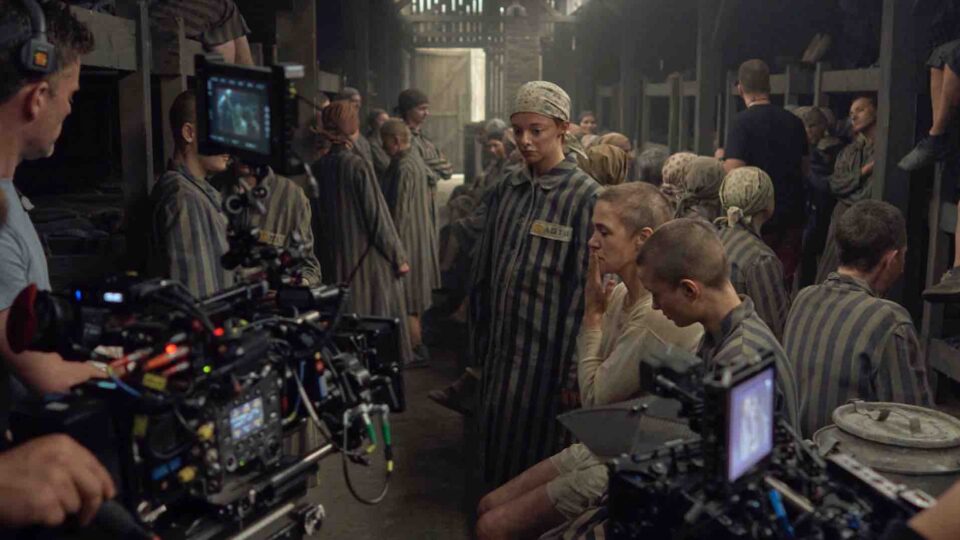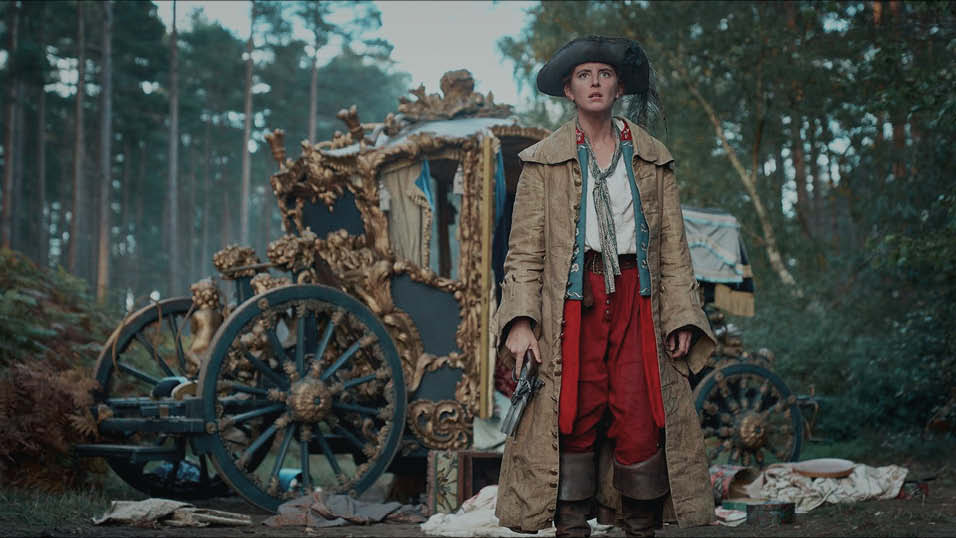Director Morgan Matthews explains how he reduced 800 hours of footage contributed by 4,000 people from all over the UK into a 90-min doc that is a portrait of the UK in a single day
A cheery Morgan Matthews comes onto the phone while in the final stages of post on his upcoming documentary Britain In A Day. It’s almost locked – the grade has been done, and the mix is happening next week. Given the scale of production, it’s perhaps surprising that he sounds so upbeat. Britain In A Day is a feature length film that’s been compiled by whittling down a mountain of footage sent in by the public.
Following a BBC appeal for content last year, 12,000 clips were uploaded to a dedicated Britain In A Day YouTube channel from around 4,000 people – about 800 hours in total. The idea was to create a self-portrait of Britain in its Olympic year, recording what people all over the country were doing, thinking and experiencing on one day -– 12 November 2011.
Matthews spent a good month just viewing all the contributions, and then another 12 weeks editing it all together. “It’s been a difficult process, but very enjoyable – I am surprised at how enjoyable. It’s interesting to make a film in a completely different way and to draw something meaningful out of all this disparate footage.”
And the best thing about all the homemade footage, he thinks, was that it was much more personal and intimate than anything a camera crew could have captured. The choice of day was also important. The 12th of November was a Saturday, so the contributions were largely shot at home rather than work. What comes through most strongly, he believes, is how important family is to people.
“In times that are otherwise insecure – financially or with careers – people are looking for security in their relationships, whether with partners or family. A lot of people were keen to show us their family – or their lack of family which they felt was missing.” By contrast, very few people talk about their jobs or financial situation.
There is also a sense of the zeitgeist. Politics makes its way in via footage of the Occupy Camp outside St Pauls. England were also playing Spain at Wembley that day, and Strictly Come Dancing was on TV – and many people filmed themselves watching them on TV.
The film, he thinks, also records an ageing population as well as people recording relatives with terminal illnesses. Cancer features quite a lot, indicating that contributors wanted to record relatives who might not have much time left. Five people featured in the film have died since it was made.
But above all, he believes it’s a film about happiness and what makes us happy. “It is reflected in the footage – we are quite preoccupied about our sense of happiness. We are aware of whether we are happy or what would make us happier. Because of this unease that has permeated since the recession, people are just a little bit more insecure and aware of their own happiness and what that happiness is related too.”
Technically, the documentary was a huge challenge to pull together. The videos that were uploaded to YouTube had over 150 different frame rates, coming from various kinds of phones, digital stills cameras and video recorders. Surprisingly, the very best shot footage could sometimes be the most difficult to work with as it looked almost too professional for the film.
But the biggest hurdle was often sound – much more so than the pictures. Poor quality images could sometimes add to the atmosphere, but video with poor quality sound was very difficult to use.
Matthews knew from the start that he wouldn’t personally be able to view all of the images. So a team of 13 ‘loggers’ looked through everything, logged it according to subject matter and scored it based on a one-to-five star system. Anything that rated from three to five stars, Matthews would view. In all, he thinks he watched 250 hours.
Then he began pulling it all together, working with editor Peter Christelis and others on four Avids. Chronologically, this was fairly straightforward as the film is structured to follow the hours of the day, starting at 12am when some contributors were partying, others winding down for the night.
“The biggest challenge was keeping the rhythm going. Essentially it is a 90-minute montage – and that is quite difficult to sustain.” Matthews felt it was important to cut it so that the film had ‘significant meaning’ but also ‘peaks and troughs.’
He’s keen to point out that he learnt a lot from viewing Kevin Macdonald’s Life In A Day, the feature doc that inspired Britain In A Day and that was also produced through Scott Free Productions. “If Britain In A Day is good, it wouldn’t be nearly as good if Life In A Day didn’t exist because that set the bar so high. We were inspired, challenged and pushed by it.”
Britain in a Day airs on BBC2 on June 11 at 9.00pm
Director
Morgan Matthews
Editor
Peter Christelis
Producer
Liza Marshall
Executive producers
Ridley Scott, Tony Scott, Kevin Macdonald
Executive producer for the BBC
Charlotte Moore
Co-producer
Jack Arbuthnott
Composer
Martin Phipps
Music supervisor
Nick Angel
Supervising sound mixer
Glenn Freemantle
Line producer
Ann Lynch
Production company
Scott Free London
Tim Dams
Share this story

















